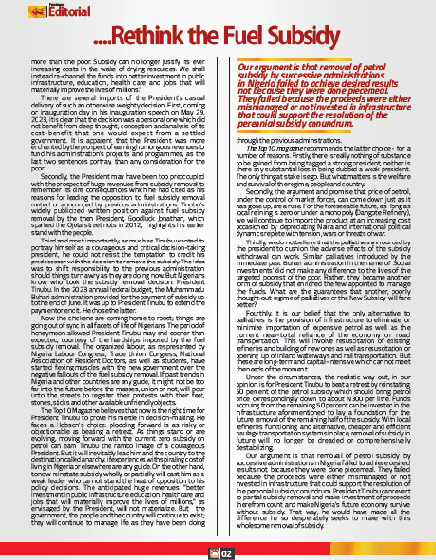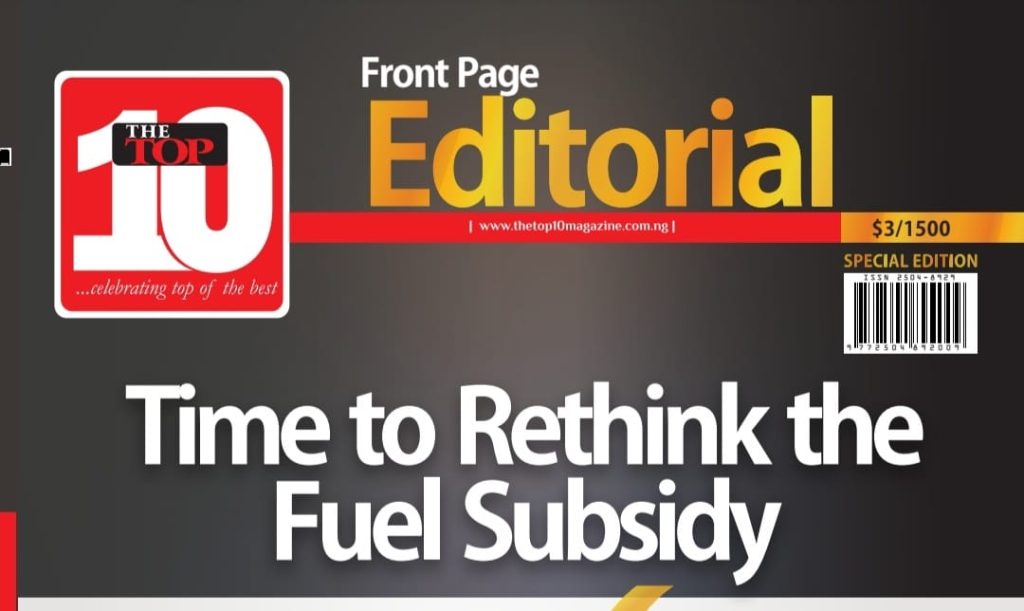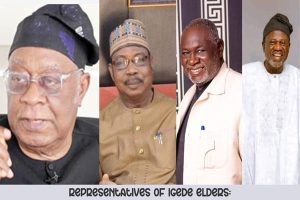No single policy decision has, arguably, jolted the Nigerian economy in the last four decades more than the recent removal of subsidy on Premium Motor Spirit, popularly known as petrol. Not even the Structural Adjustment Programme (SAP) introduced by the military President, Ibrahim Babangida, in the mid-1980s, a combo aimed at transferring the ownership and management of economic resources from government to the private sector and market forces, including appropriate pricing of goods and services (petroleum products inclusive), shook the very foundation of the economy as this one has done.


Within two months of removal of the fuel subsidy, the entire economy has virtually fallen apart. Every link in the myriads of economic value chains has been dealt a fatal blow. Many independent petroleum products marketes can no longer restock. With motorists, road transporters and small-scale businesses now needing three times more to fuel their vehicles and power generating sets, many have parked their vehicles or closed shop. Transporters who muster enough money to put their vehicles on the road have commensurately raised their fares beyond the reach of commuters and traders. Many car owners have parked their cars to join millions of Nigerians who commute on their feet and on public transport. In big cities like Lagos and Abuja, a number of junior workers now sleep at any available space near their work places on work days, returning to their homes only during weekends, to be able to survive on their salaries.
Similarly, as a result of high transport fares, traders, including raw material suppliers, have priced their wares beyond the reach of end users, including businesses – from small to large-scale manufacturers. Those that manage to buy expensive raw materials to produce have to face the trauma of prohibitive product distribution costs. Yet, these additional costs of doing business cannot be successfully and completely passed on to consumers who, themselves, are buffeted from all corners by sundry demands on their existing meagre incomes. As a result, many businesses, in all categories, have shut down, are in the process of closing shop or will, sooner than later, be compelled by unbearable costs to do so. As businesses shut down, they empty millions of workers into the labour market to join the millions of the unemployed already queuing for non-existent jobs.
Social life and human development have also been dealt a deadly blow by the removal of fuel subsidy. Social interaction at leisure and relaxation spots have been severely curbed by inability of people to move around, not to talk of paying for goods and services at the meeting points. Many sick people cannot pay their fares to hospitals, talkless of affording the cost of medication. Higher death rates should be expected. Education at all levels is becoming many times more expensive with spikes in school fees. Thousands of eligible youths will not be able to enrol in schools while those already in will be forced out by fees their parents cannot afford. The price, fee or cost hikes in one sector will naturally provoke or reinforce those in others, including wages, until they get to a crisis point.
Need we dig deeper into the instant or imminent adverse consequences of the removal of fuel subsidy? Doing so would only further weaken our spirit and resolve to survive. Suffice it to say that the combined and ultimate effect of the subsidy removal is the eventual collapse of our economic, social and political systems, if not the country itself.
To recall that a decision with such dire consequences on the foundation of our very existence was taken with utmost casualness is, to say the least, puzzling. The President conveyed the decision in just three sentences: “We commend the decision of the outgoing administration in phasing out the petrol subsidy regime which has increasingly favoured the rich more than the poor. Subsidy can no longer justify its ever increasing costs in the wake of drying resources. We shall instead re-channel the funds into better investment in public infrastructure, education, health care and jobs that will materially improve the lives of millions.”
There are several imports of the President’s casual delivery of such an otherwise weighty decision. First, coming on inauguration day in his inauguration speech on May 29, 2023, it is clear that the decision was a personal one which did not benefit from deep thought, conception and analysis of its cost-benefit that one would expect from a settled government. It is apparent that the President was more enchanted by the prospect of earning humongous revenues to fund his administration’s projects and programmes, as the last two sentences portray, than any consideration for the poor.
Secondly, the President may have been too preoccupied with the prospect of huge revenues from subsidy removal to remember its dire consequences which he had cited as his reasons for leading the opposition to fuel subsidy removal muted or announced by previous administations. Tinubu’s widely publicized written position against fuel subsidy removal by the then President, Goodluck Jonathan, which sparked the Ojota street riots in 2012, highlights his earlier stand with the people.
Third and most importantly, as much as Tinubu wanted to portray himself as a courageous and critical decision-taking president, he could not resist the temptation to credit his predecessor with the decision to remove the subsidy. The idea was to shift responsibility to the previous administration should things turn awry as they are doing now. But Nigerians know who took the subsidy removal decision: President Tinubu. In the 2023 annual federal budget, the Muhammadu Buhari administration provided for the payment of subsidy up to the end of June. It was up to President Tinubu to extend the payment or end it. He chose the latter.
Now the chickens are coming home to roost; things are going out of sync in all facets of life of Nigerians. The period of honeymoon allowed President Tinubu may end sooner than expected, courtesy of the hardships imposed by the fuel subsidy removal. The organized labour, as respresented by Nigeria Labour Congress, Trade Union Congress, National Association of Resident Doctors, as well as students, have started flexing muscles with the new government over the negative fallouts of the fuel subsidy removal. If past trends in Nigeria and other countries are any guide, it might not be too far into the future before the masses, union or not, will pour unto the streets to register their protests with their feet, stones, sticks and other available unfriendly objects.

The Top10 Magazine believes that now is the right time for President Tinubu to prove his mettle in decision-making. He faces a Hobson’s choice: plodding forward is as risky or objectionable as beating a retreat. As things stand or are evolving, moving forward with the current zero subsidy on petrol can earn Tinubu the rambo image of a courageous President. But it will inevitably lead him and the country to the destination called anarchy, if experiences with spiraling cost of living in Nigeria or elsewhere are any guide. On the other hand, to now reinstate subsidy wholly or partially will cast him as a weak leader who cannot stand the heat of opposition to his policy decisions. The anticipated huge revenues, “better investment in public infrastructure, education, health care and jobs that will materially improve the lives of millions,” as envisaged by the President, will not materialize. But the government, the people and the country will continue to exist; they will continue to manage life as they have been doing through the previous administations.
The Top10 magazine recommends the latter choice – for a number of reasons. Firstly, there is really nothing of substance to be gained from being tagged a strong president, neither is there any substatial loss in being dubbed a weak president. The only thing at stake is ego. But what matters is the welfare and survival of the regime, people and country.
Secondly, the argument and promise that price of petrol, under the control of market forces, can come down just as it has gone up, are a ruse. For the foreseeable future, as long as local refining is zero or under a monopoly (Dangote Refinery), we will continue to import the product at an increasing cost occasioned by depreciating Naira and international political dynamics replete with tension, wars or threats of war.
Thirdly, we do not believe that the palliatives announced by the president to cushion the adverse effects of the subsidy withdrawal can work. Similar palliatives introduced by the immediate past Buhari administation in the name of ‘Social Investments’ did not make any difference to the lives of the targeted poorest of the poor. Rather, they became another form of subsidy that enriched the few appointed to manage the funds. What are the guarantees that another, poorly thought-out regime of palliatives or the New Subsidy will fare better?
Fourthly, it is our belief that the only alternative to palliatives is the provision of infrastructure to eliminate or minimize importation of expensive petrol as well as the current near-total reliance of the economy on road transportation. This will involve resuscitation of existing refineries and building of new ones as well as resuscitation or opening up of inland waterways and rail transportation. But these are long-term and capital-intensive which cannot meet the needs of the moment.
Under the circumstances, the realistic way out, in our opinion, is for President Tinubu to beat a retreat by reinstating 50 percent of the petrol subsidy which should bring petrol price correspondingly down to about N300 per litre. Funds accruing from the remaining 50 percent can be invested in the infrastructure aforementioned to lay a foundation for the future removal of the remaining half of the subsidy. With local refineries functioning and alternative, cheaper and efficient haulage transportation systems in place, removal of subsidy in future will no longer be dreaded or comprehensively destabilizing.
Our argument is that removal of petrol subsidy by successive administrations in Nigeria failed to achieve desired results not because they were done piecemeal. They failed because the proceeds were either mismanaged or not invested in infrastructure that could support the resolution of the perennial subsidy conundrum. President Tinubu can revert to partial subsidy removal and make investment of proceeds therefrom count and make Nigeria’s future economy survive without subsidy. That way, he would have made all the difference he so desperately seeks to make with this wholesome removal of subsidy.






